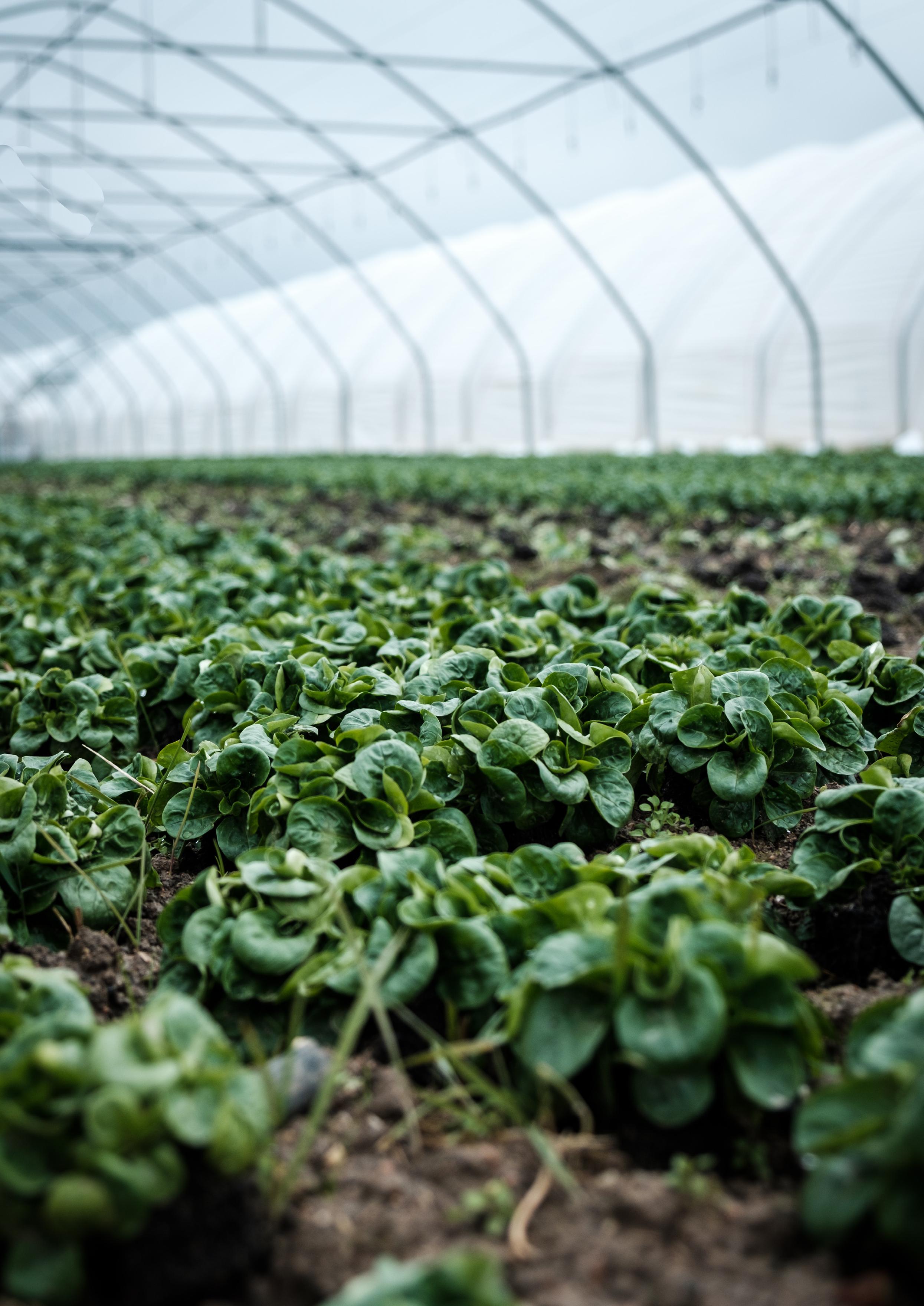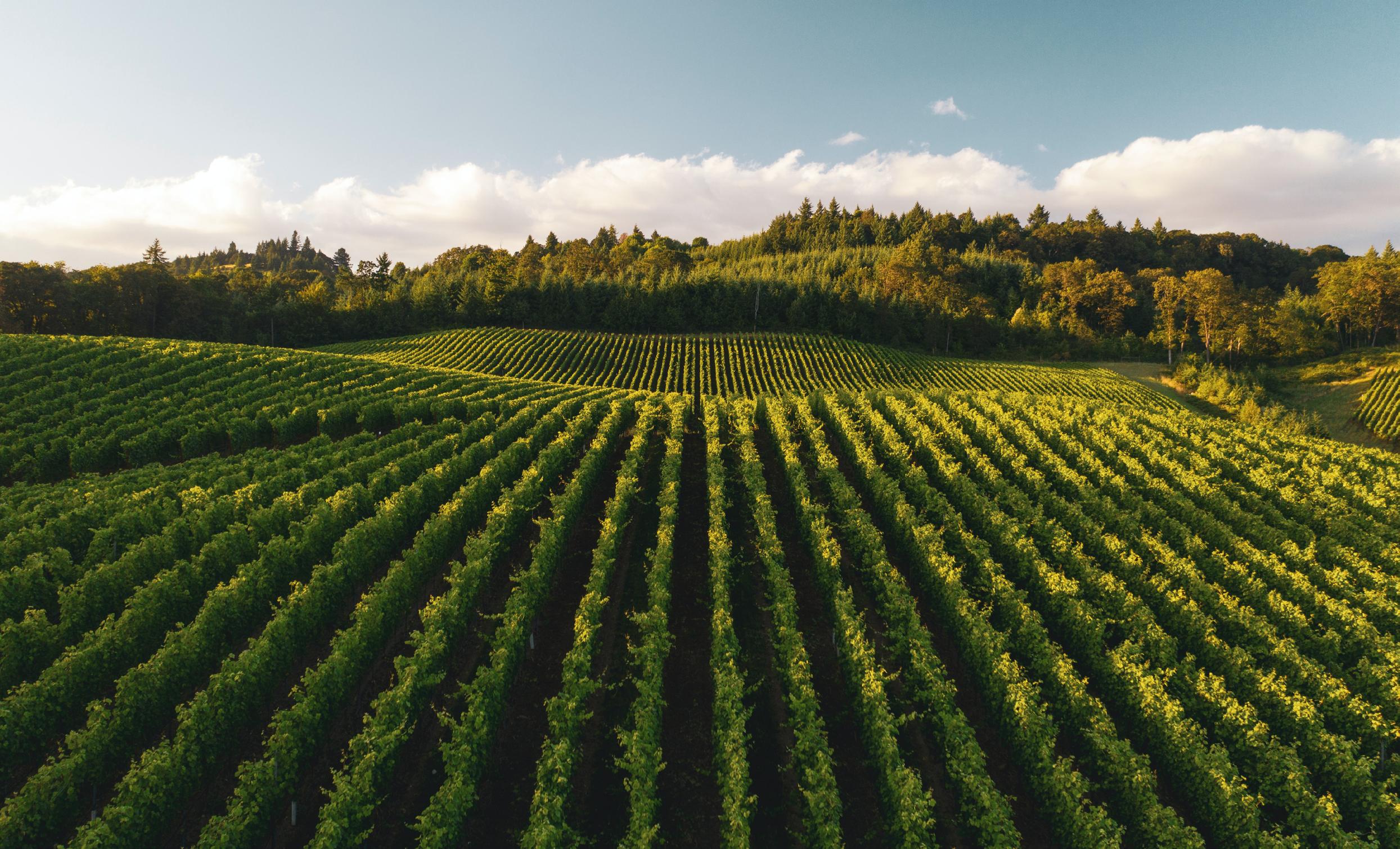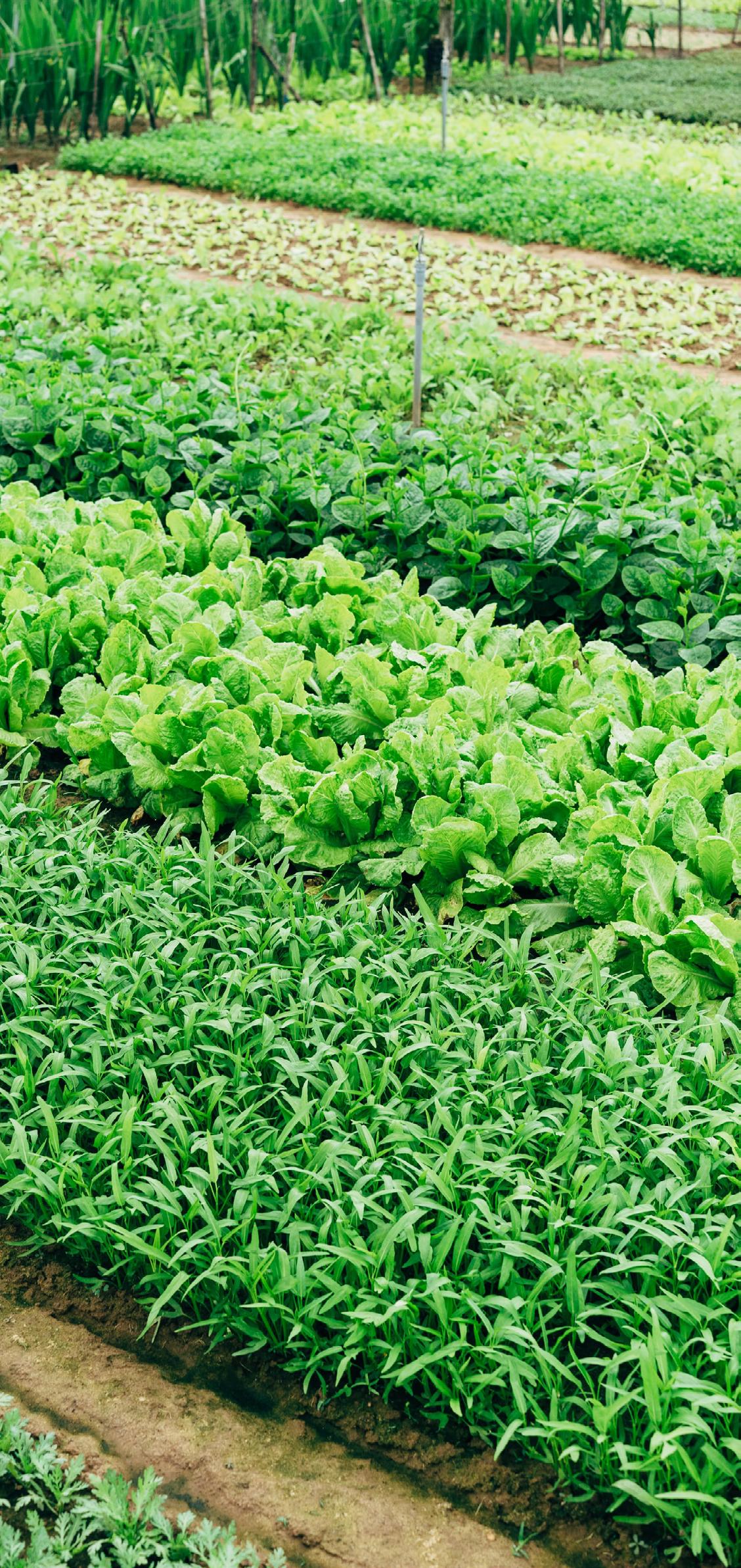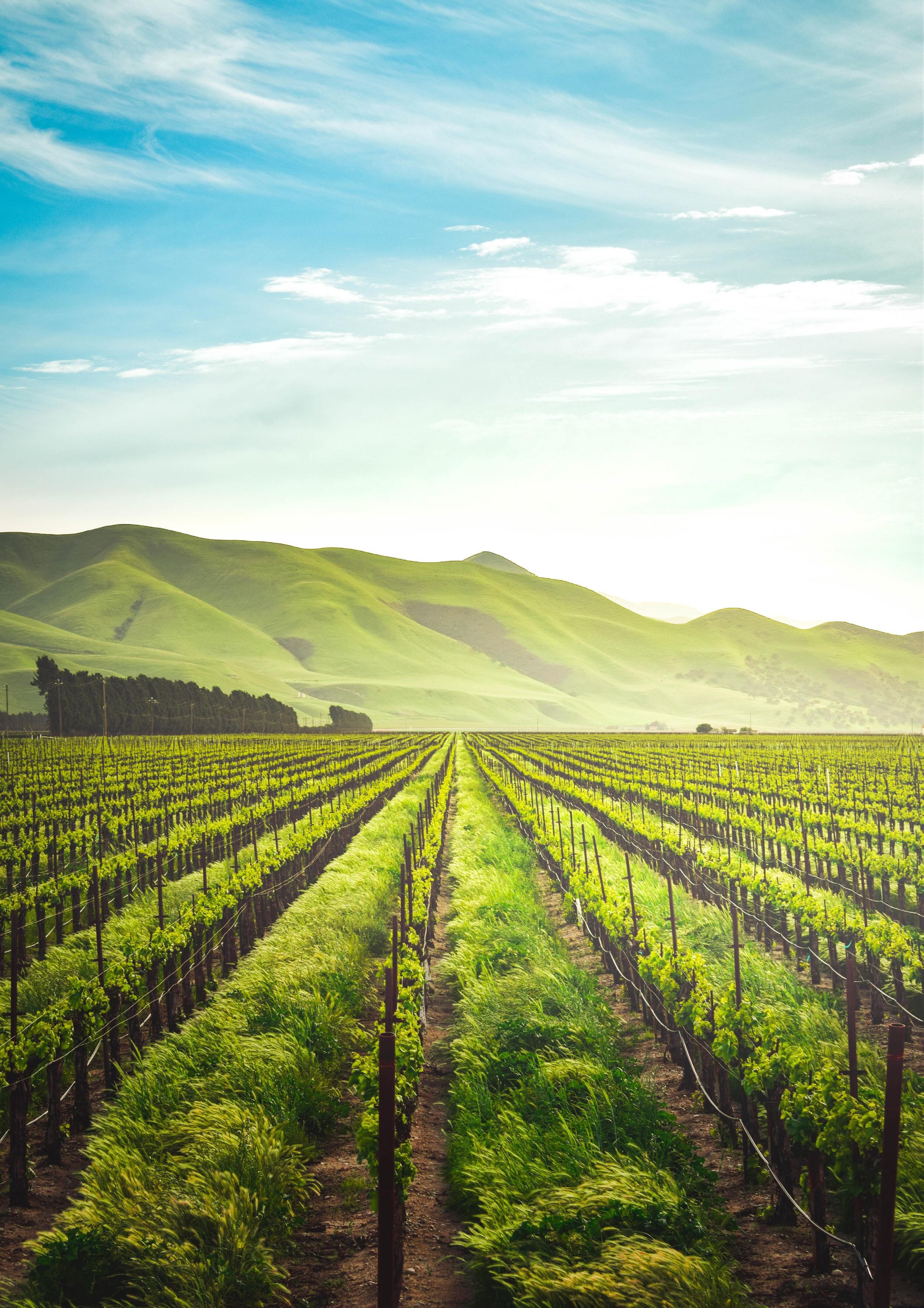

Organic Farming Chain
Blockchain is one of the most important developments in the field of information technology ever. We think that it will drastically change the way food is tracked through the distribution system, and can solve numerous problems in the global food distribution system.
Recently, blockchain started to enter the agriculture industry. Blockchain is shaping the agricultural technology sector and creating benefits for both the farmers and the consumer.
Blockchain is a ledger system that can be used to record information about agricultural products, so that the level of transparency in the system is much higher. The ledger is created by all participating parties typically through a peerto-peer network and new records must be verified by the network before adding it to the blockchain.
Any corrections or changes on the recorded data must require agreements from the majority of the parties involved. Therefore, it is almost impossible to change data recorded in a blockchain in practice.
New Solutions for Tracking Our Food Supply
Blockchain technology allows peer-to-peer transactions to happen transparently and without requiring any middleman in the agriculture sector or an intermediary like a bank. In addition, cryptocurrency can be used to settle transactions, and help to drop transaction costs in the agri-food market.
These ledger systems also offer a reliable way to tracing transactions between participants. This record can be used to detect fraud, as well as tainted goods in the system.
Problems can be reported in real-time by incorporating smart contracts that help to solve the challenge of tracking products in the wide-reaching supply chain caused by the complexity of the agrifood system.
Blockchain technology also provides transparency among all involved parties and the collection of reliable data by recording every step in a product’s value chain, ranging from a product’s creation to its end.
Thus, the technology supports food safety in a way that was never possible before.
The data created by participating farmers is highly valuable for making data-driven solutions to help consumers to make informed decisions to protect from malignant producers and the environment.
There are numerous applications for blockchain in the landscape of agriculture currently including these four major segments:
 Smart farming Food supply chain Agricultural insurance Transactions of agricultural products
Smart farming Food supply chain Agricultural insurance Transactions of agricultural products
The Proof-of-Concept is Already in Place
Several companies have committed to adopting blockchain technology in food safety management. Giants Wal-Mart, Alibaba, and JD.com are not only applying blockchain in food traceability projects but also using blockchain technology for tracking the entire process of food production, processing and sales.
2016Wal-Mart, Tsinghua University, and IBM started applying the Hyperledger blockchain system to food supply chain management, exploring the Chinese pork supply chain and the United States mango supply chain as the practical application methods and benefits of blockchain technology.
Alibaba and Australia Post adopted the blockchain to combat food adulteration. The same year, the world’s 10 largest food and fast-moving consumer goods (FMCG) suppliers.
These companies included Wal-Mart, Nestle, Dole, and Golden Food, partnered with IBM to integrate the blockchain into their supply chain, aiming to detect food suppliers’ misconduct more quickly. Under this partnership, IBM provides the blockchain platform to help food companies improve the visibility and traceability of their supply chains and make food safer.
Organic Farming Chain Enters the Market

Organic Farming Chain is one of the pioneering organizations that take full advantage of blockchain technology to build the future of farming. We are working to bring trustworthiness to food products, and have already attracted the attention of one of the world’s largest food distributors.
The project is supported by an experienced team that is involved in both the agriculture industry and the cryptocurrency space. Its goal is to secure consumers’ food, integrate blockchain technology with life, support local farmers, and bring a crypto environment to increase earnings for everyone in the ecosystem.
How Organic Farming Chain Creates Solutions
Organic Farming Chain is one of the pioneering organizations that take full advantage of blockchain technology to build the future of farming. We are working to bring trustworthiness to food products, and have already attracted the attention of one of the world’s largest food distributors.
The project is supported by an experienced team that is involved in both the agriculture industry and the cryptocurrency space. Its goal is to secure consumers’ food, integrate blockchain technology with life, support local farmers, and bring a crypto environment to increase earnings for everyone in the ecosystem.
With increased globalization and intense competition in the market, food supply chains have become longer and more complex than ever before.
Some common problems in food supply chains include food traceability, food safety and quality, food trust, and supply chain inefficiency. All of these factors are adding additional risks to the entire society, economy, and endangering the health of humans.
The project uses blockchain technology to store data and information that various actors and stakeholders generate throughout the entire farming and distribution process.
Our platform takes products from seed to sale, and ensures that agricultural products are traceable and verifiable.
All the dates, company names, addresses, etc, of farmers, distributors, and retailers are stored on our blockchain. As a result, one will be able to see which farmer grew a product, where and when it was cultivated, and how it came to the grocery store.
To ensure the authenticity of the information recorded by producers, the project supports information security by allowing only one machine to create data that is recorded on the blockchain. The data will be audited when the mechanism is built in the 2nd level. It ensures that the data is fully transparent, and all recorded data is immutable.
As the organic food industry and the crypto world keep growing, the project is expected to create longterm earnings.
The coin is produced to trace and record the organic farming products.
Since the coin serves the main role in the process, demand for the token should be robust.
FOOD PRODUCERS
OFC As Reputation
Helps build a solid relationship with consumers
FOOD PRODUCERS
OFC As Identification
Makes it more difficult for suppliers of counterfeit products
FOOD PRODUCERS
OFC As Insurance
helps address concerns about the safety, quality, and environmental friendliness of food
The project will use the Binance Smart Chain. Its coin, called OFC Coin, is a BEP-20 Coin which operates on Binance Chain.
From the food producers’ perspective
The use of blockchain technology helps build a solid relationship with consumers. The reputation of their products is ensured via reliable product information stored on the blockchain.
Therefore, our solution helps enterprises to better realize value from their products and thus increase their competitiveness.
From the suppliers’ perspective
In addition, our company makes it more difficult for suppliers of counterfeit products. Even if fake products enter the system, once detected, they would be removed quickly, and the agent responsible would be easy to identify.
From the consumers’ perspective,
Our project helps address concerns about the safety, quality, and environmental friendliness of food. By ensuring reliable information about how food is produced and distributed, consumers have near 100% confidence in its safety and quality.
OFC Tokenomics
The Organic Farming Chain is powered by the OFC Coin, a BEP20 token running on the Binance Smart Chain network. This token will serve several purposes and will allow the platform to benefit from the low fees, network stability, and high performance offered by the network.
Binance Smart Chain has grown in popularity as an alternative to Ethereum and other legacy networks which have been unable to deal with the increasing demand of crypto enthusiasts as the ecosystem grows.
While this success has been especially evident in the NFT and DeFi niches, it has not been limited to them.

The OFC Token
The OFC token will serve as the main unit of value for all transactions taking place in the Organic Farming Chain ecosystem.
However, its use will not be limited to this use but will also offer incentives in the form of rewards to its holders, have burning mechanisms to fight inflation, and provide its holders with governance rights.
These governance rights will come in the form of voting power, with OFC holders being able to stake their tokens on pools to vote in different proposals. These proposals can range from the next geographic location where the project will be implemented to what new features will be added on future upgrades. While this feature will not be available immediately upon launch, holders can expect it during the 2nd level of development.
Token holding in Organic Farming Chain will work in a similar way to how staking works in other protocols. 1% of all the fees paid in the ecosystem will be allocated to provide holders with rewards. This will incentivize investors and users to hold to their tokens, helping the value of the whole ecosystem to increase by diminishing supply.
OFC’s Deflationary Model
Incentivizing holders is not the only way in which we plan to decrease the supply of the OFC token to fight inflation and keep the token in an upward trend. The OFC coin was designed to have a deflationary mechanic that will result in its burning when being used.
This slow reduction in the supply will counteract the effects of inflation by keeping the coin’s value steady.
This mechanism has proven to be so successful on several blockchain projects, that it was recently implemented by the biggest blockchain network at this time: The Ethereum network.
This implementation has resulted in added stability for the network, increasing competition and benefiting the token’s value, all while also providing multiple benefits to the whole ecosystem and its users.
With a 1% burning fee, we will ensure that the supply of OFC tokens decreases as the demand for the ecosystem’s service increments.
Token Distribution
The total supply of the OFC token will be presented in its entirety before the launch of the token’s Initial DEX Offering (IDO). This will not only ensure that it is allocated correctly to all of the different objectives determined by the team but will also ensure the stability of its value and the future of the ecosystem.
To make sure the stability of the OFC token’s price is not affected by big moves by partners and the Organic Farming Chain team, vesting periods will be set in place. This
measure will not only protect the token’s performance but also provide investors with a higher degree of trust in the project.
The token supply will be allocated to ensure the correct functioning of different areas necessary for the ecosystem’s success, ranging from its development and marketing efforts, early fundraising, and the addition of liquidity to the different pools.
The token distribution for the OFC coin will be implemented as follows:
Ecosystem 30%
Initial DEX Offering
20%
To ensure every investor has a fair chance of supporting the early stages of the project, the OFC token will only be available via an Initial DEX Offering.
The Team at OFC
The team at OFC integrates high-level skills and a variety of professional backgrounds.
Our vision is to provide proof and transparency for organic farming products from around the world. Moreover, our mission is to combine cutting edge technology with the best farming operations.
We have extensive experience in software, agriculture, digital management, financial consulting, software development, science, and marketing.
Here are our principle team members
Alessandro Ravioli

Chief Executive Officer (CEO) and Founder of OFC
Mr. Ravioli graduated from Politecnico di Milano as an electrical engineer. In the first years of his career, he worked as a technical sales expert at ABB. At ABB, he discovered the potential effects of digital transformation in the early 90’s. At that time, to understand what computers can do he learned a bit of Delphi and Fortran by himself. Whilst, he had several managerial positions in European countries. In 2010, he turned back to ABB as COO (Chief Operating Officer). In 2015, he started his business as a digital transformation consultant. He helped over 20 companies to realize their digital potential and started to transform. In 2017, he noticed the value in blockchain technology and began to invest.
Nikolai Dubrevsky
Chief Technology Officer (CTO)
With more than 15 years working as a Software Engineering in important companies. Mr. Dubrevski started his software engineering career at the age of 14. His family could not afford for him to attend College. Instead, he started to work as a software engineer at the age of 17 to support his family. After several years of creating value with various companies, he started to learn blockchain technology in 2014 and wrote 3 different blockchain networks with 3 different specialties as side projects.

Abdelkareem Yousef
Senior Agricultural Engineer, Phd in Plant Origins
Mr. Yousef graduated from The British International School in Cairo with an Honor Degree and studied in Agriculture Faculty in Cairo University in both undergraduate and Ph.D. His works mostly concentrated in original biological structures of plants cultivated in Mediterranean coasts.


Michael Brat
Chief Financial Officer (CFO).
Ex-Director of Finance at the Federal Trade Commission (FTC), and Financial Consultant of Supply Chain Companies.
A Roadmap to Better Food Production and Distribution
Our adventure began three years ago, and today we are on the cusp of rolling out the OFC blockchain. We are very excited to develop an idea that combines blockchain technology with the real-world environment we live in, and supports hard-working farmers.
Here are the important dates
December 2018
The Idea for OFC Comes Together
April 2019
Local Farmers Give OFC Feedback to Guide Development
December 2019
The Team Evaluates Supply-chain Processes
December 2020
Team is Expanded. We Are Ready to Build The Company.
July 2020:
The OFC Team Takes Initial Development Parameters to Local Farmers for Another Round of Feedback
March 2021:
We are Ready to Create the Technology That Powers OFC
October 2021
IDO Phase Begins. We are Close to Being Ready to Demo Our Platform.
2022 and Beyond
Roll-Out The Technology. 2nd phase Development and Launch.

